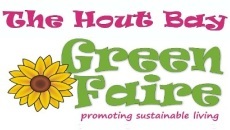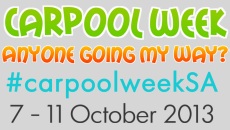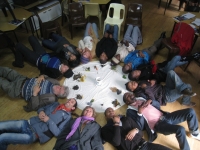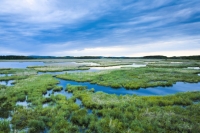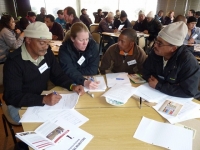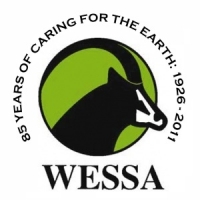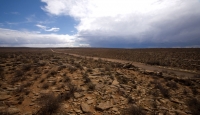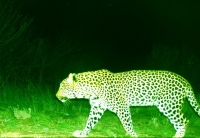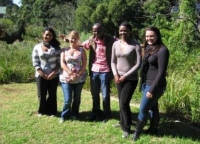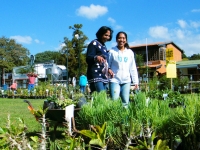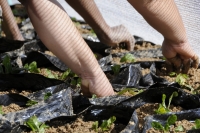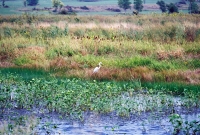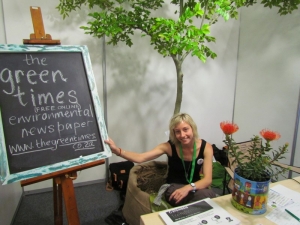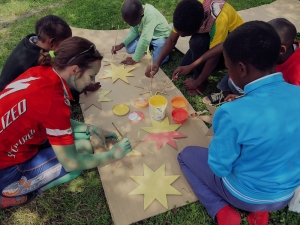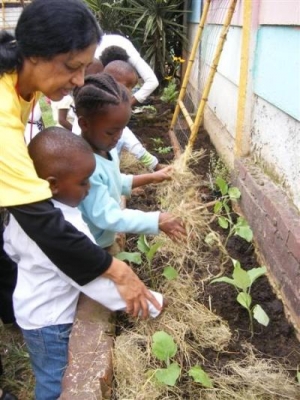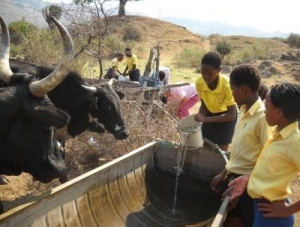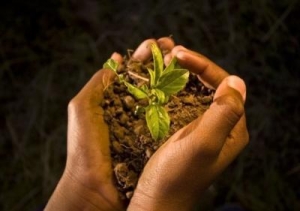The Wildlife and Environment Society of South Africa (WESSA) formally recognised and celebrated a number of remarkable achievements in the environmental conservation sector on Friday evening, with the presentation of the organisation’s 2013 WESSA National Awards.
World Rhino Day in South Africa will see conservationists and concerned citizens reflecting on another tragic year, the fifth in a row, where a record number of rhinos poached will most certainly be reached.
Each year on the third Saturday of September volunteers around the world take part in the world's biggest coastal clean-up day, where they head to the beaches to remove debris from shorelines, waterways and oceans.
WESSA continues to urge the Government to exercise the precautionary principle in the National Environmental Management Act (1998), which states the proponents of an activity must provide proof that it will not cause harm to the natural environment or people before the activity is allowed to go head.
Justine shares her transformative and influential experience taking part in the Stepping Up to Environmental Leadership course held recently in Cape Town.
Throughout southern Africa, freshwater ecosystems are under severe pressure with more than 80% of South Africa’s rivers being threatened. On International Biodiversity Day the Endangered Wildlife Trust (EWT) urges all South Africans to celebrate this precious and scarce source of life and take urgent, personal action to preserve it.
WESSA will be taking on 59 interns across South Africa from the 1 April 2013, offering exciting opportunities to kick-start environmental careers.
Has film played a significant role in your life? Have you ever watched a film that influenced your direction, or changed the way you feel or what you do? Laurence Dworkin and George Davis, coordinators of the CareTakers project, believe that film can indeed change the way we feel, think and act.
The annual WESSA Awards are once again upon us, recognising individuals and groups who have made a significant difference in the environmental conservation or environmental education sector in South Africa.
Last month, Treasure Karoo Action Group (TKAG) won the category for Non-Profit Organisation at the Mail & Guardian Greening the Future Awards in Johannesburg. Whatever the government decides about fracking in the Karoo, this small group of volunteers has succeeded in broadening the debate.
There has been great excitement at Vondeling Wine Farm, where a recently installed camera trap confirmed suspicions that a Cape Leopard has increased its territory to include the Paardeberg Mountain.
A few lucky GSN members will get the opportunity to take an all-expenses-paid trip to the Umgeni Valley Nature Reserve in Howick, to attend the student networking meeting "GSN Indibano" from 26 - 29 August. All travel and accommodation expenses will be paid by SAEON.
The Sustainable Living and Indigenous Plant Fair (SLIP), to be held in Pietermaritzburg at the end of April, will incorporate sustainability in its broadest and truest terms. Naturally, Green Times are the official media partners.
Sustainability is spreading into communities via greener corporates who take their green commitment to the next level. Nedbank’s Caring for Communities initiative helps to entrench the values and benefits of sustainability in the lives of mainly rural communities.
The programme was started with the aim to raise awareness of the strategic importance of wetlands to facilitate proper management and restoration of wetlands and focuses mainly on wetlands outside nature reserves.
During the Midlands Moving Planet – Day of Global Action to Move Beyond Fossil Fuels, uMngeni residents signed a petition asking the local Municipality to make the move to a sustainable future. As part of the celebration of current sunlight and renewable energy, local children painted bright sun shapes on which the demands were written.
There's something in the air this spring and itis inspiring! PMB Eco-Schools all over Msunduzi have raised their hands for a healthy environment, healthy rivers and healthy communities.
Sebope Primary School is located in the Sekhukhune District of Limpopo Province approximately 36 km from Burgersfort. The school is in its third year with the WESSA/WWF Eco-Schools programme in Limpopo province which is funded by De Beers.
What happens to fish if you throw empty plastic bags in a river? Why is it wrong to litter? How many different types of plants exist in my community, and which ones can I plant to provide me with food?





